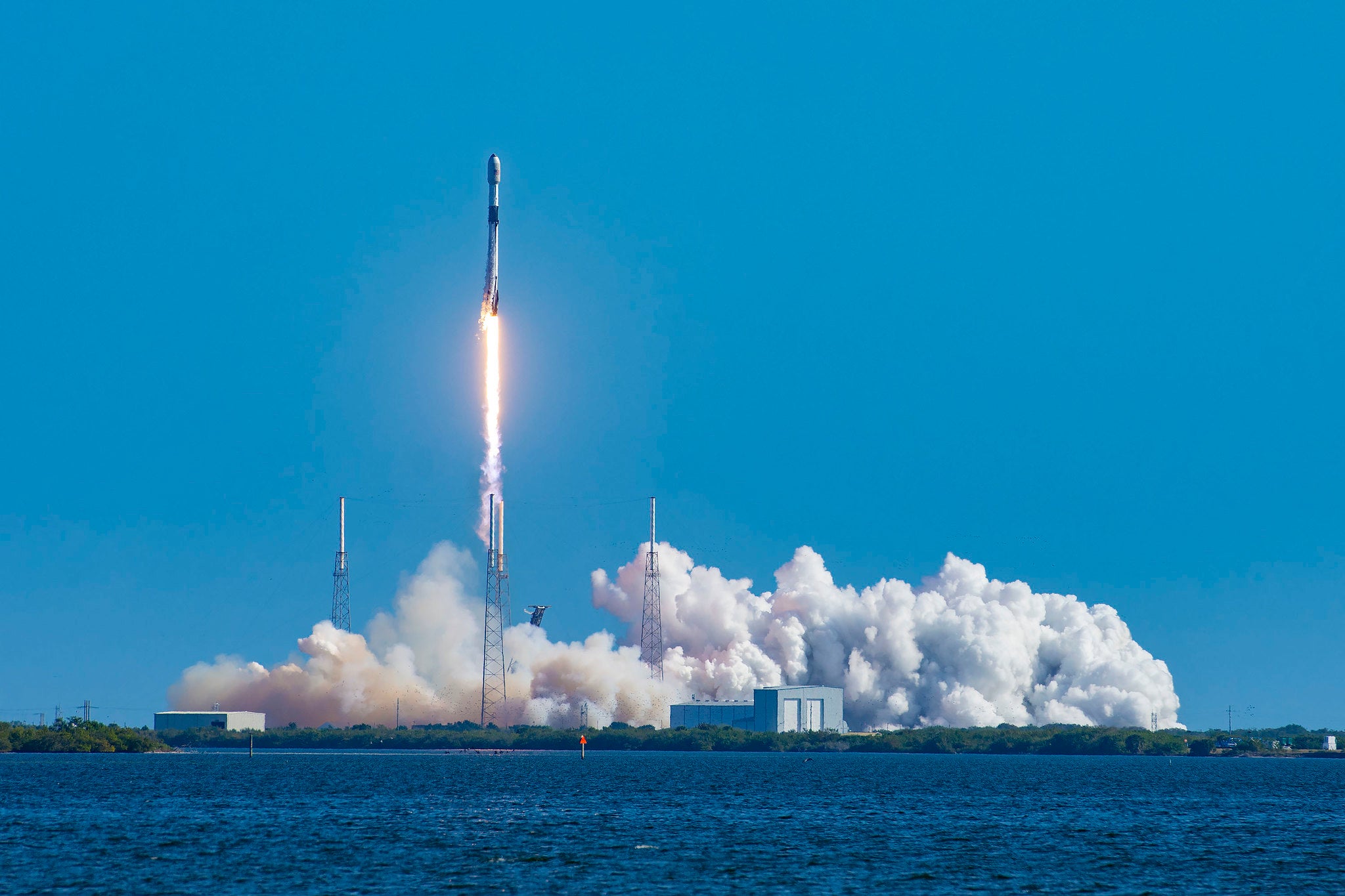Space news – live: North Korea touts spy satellites and space programs compare rocket size
Follow for the latest space news and an analysis in our live coverage below

After North Korea tested two ballistic missiles on 26 February and 5 March, the first such tests for the authoritarian regime since 2017, US officials worried the North Koreans could resume nuclear tests with an eye for developing long-range nuclear missiles.
But North Korean state media recently countered that accusation to say no, the missile tests are not the prelude to launching nuclear warheads. Rather, the launches were part of a five-year plan to launch spy satellites to monitor US forces in Asia, which if true may not leave US officials much more comfortable than before.
Former US astronaut Scott Kelly, meanwhile, took to twitter to mock the Russian space program over the size of its rockets, tweeting an image showing a Russian Soyuz rocket and the much larger Nasa Space Launch System, or SLS, which the US space agency hopes to push out to the launch pad for a major test on 17 March.
Capt Kelly has been very active on social media, tweeting information about the war in Ukraine at the Russian people, in Russia, and engaging with the bellicose head of the Russian space agency, Dmitry Rogozin. The two had a back and forth on Twitter where Mr Rogozin told Capt Kelly to shut up, Captain Kelly asked if Mr Rogozin was special enough to keeping tweet despite a Russian ban on the social media side, leading Mr Rogozin to block Capt Kelly.
The phallic measuring aspect of Capt Kelly’s tweet may or may not be intentional — he did not respond to requests for comment on his social media activities — but such interpretations are common in the world of rocketry, with Amazon Billionaire and Blue Origin founder Jeff Bezos meeting mockery over the explicit proportions of his own rocket in 2021.
You can follow all the latest space news and analysis in our live coverage below.
Russia has halted sales of rocket engines to the US, leading to an exchange of taunts between Dmitry Rogozin, head of Russia’s space agency, Roscosmos, and Elon Musk, CEO of the American company SpaceX.
In retaliation for Western sanctions placed on Russia over Russia’s invasion of Ukraine, Mr Rogozin said on Russian state television that Russia would no longer sell its RD-180 and RD-181 rocket engines to the US, or service existing engines.
“Let them fly on something else, their broomsticks, I don’t know what,” he quipped.
United Launch Alliance, a collaboration between US aerospace giants Boeing and Lockheed Martin, uses the RD-180 engine in its Atlas V rocket. But United Launch Alliance president and CEO Tory Bruno told Aviation Week his company has enough engines stockpiled to completed the 12 or so launches his company currently has scheduled.
SpaceX, meanwhile, uses Merlin and Raptor engines in its rockets, engines of the company’s own design and manufacture. After SpaceX used a Merlin-powered Falcon 9 rocket to launch 47 Starlink satellites Thursday, Mr Musk tweeted a video of the launch with the caption, “American broomsticks.”
SpaceX is already offering its Starlink internet service to Ukranians for free, but CEO Elon Musk announced Thursday that SpaceX will push out a special software update for users in the besieged nation as well.
The software update will allow Starlink user terminals — which SpaceX also shipped into Ukraine — to operate using less energy, potentially operating on the current provided by a car’s cigarette lighter.
The update comes after exchanges on Twitter between Ukranian Vice Prime Minister Mykhailo Fedorov and Mr Musk, where Mr Fedorov asked Mr Musk for help in keeping Ukranian internet infrastructure online in the midst of war with Russia, and the two discussed using solar panels to power Starlink terminals.
“Solar panels and battery pack better than generator, as no heat signature or smoke and doesn’t run out of fuel,” Mr Musk wrote to Mr Fedorov at one point.
SpaceX launches internet satellites while providing aid to Ukraine
While OneWeb’s scheduled internet satellite launches from Russia’s spaceport are grounded for the foreseeable future, SpaceX successfully launched 47 of the company’s Starlink satellites on Thursday.
The launch will help SpaceX get back on track in building out its constellation of low Earth orbit satellites after a solar storm knocked 40 Starlink satellites out of orbit shortly after launch earlier this month.
But the Starlink launch also comes as SpaceX CEO Elon Musk has responded to requests from Ukranian Vice Prime Minister Mykhailo Fedorov to help Ukraine stay connected to the internet amid the ongoing Russian invasion of Mr Fedorov’s country. Mr Musk has offered the Starlink internet service to Ukrainians for free, and shipped the small satellite dishes necessary for connecting to the network to Ukraine.
ESA Solar Orbiter heads back toward Sun
The European Space Agency’s Solar Orbiter spacecraft has already taken the closest pictures ever of the sun, and documented the largest solar prominence ever observed.
Now ESA is preparing for Solar Orbiter’s next close pass at our Sun. The spacecraft will pass inside the orbit of Mercury on 14 March, and fly closer than 50 million kilometers of the Sun on 26 March.
More than mere technical derring do, the close pass by our star will allow the Solar Orbiter Space craft to make observations that could help scientyists better understand the Sun’s atmosphere and the solar eruptions that cause space weather than can affect satellites and space operations near Earth. A solar eruption in early February generated a geomagnetic storm that pulled 40 newly launched SpaceX Starlink satellites out of their orbits.
Subscribe to Independent Premium to bookmark this article
Want to bookmark your favourite articles and stories to read or reference later? Start your Independent Premium subscription today.

Join our commenting forum
Join thought-provoking conversations, follow other Independent readers and see their replies